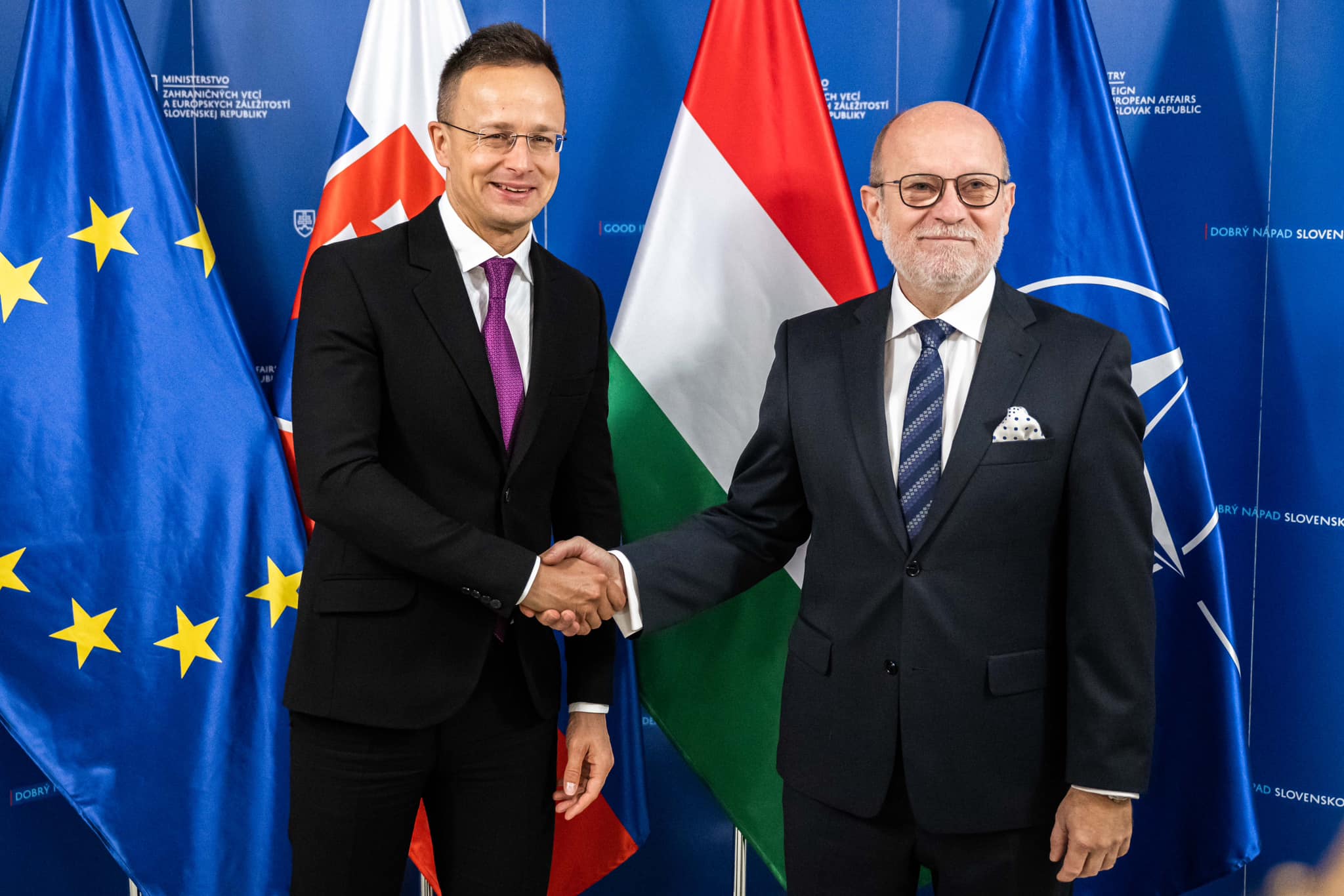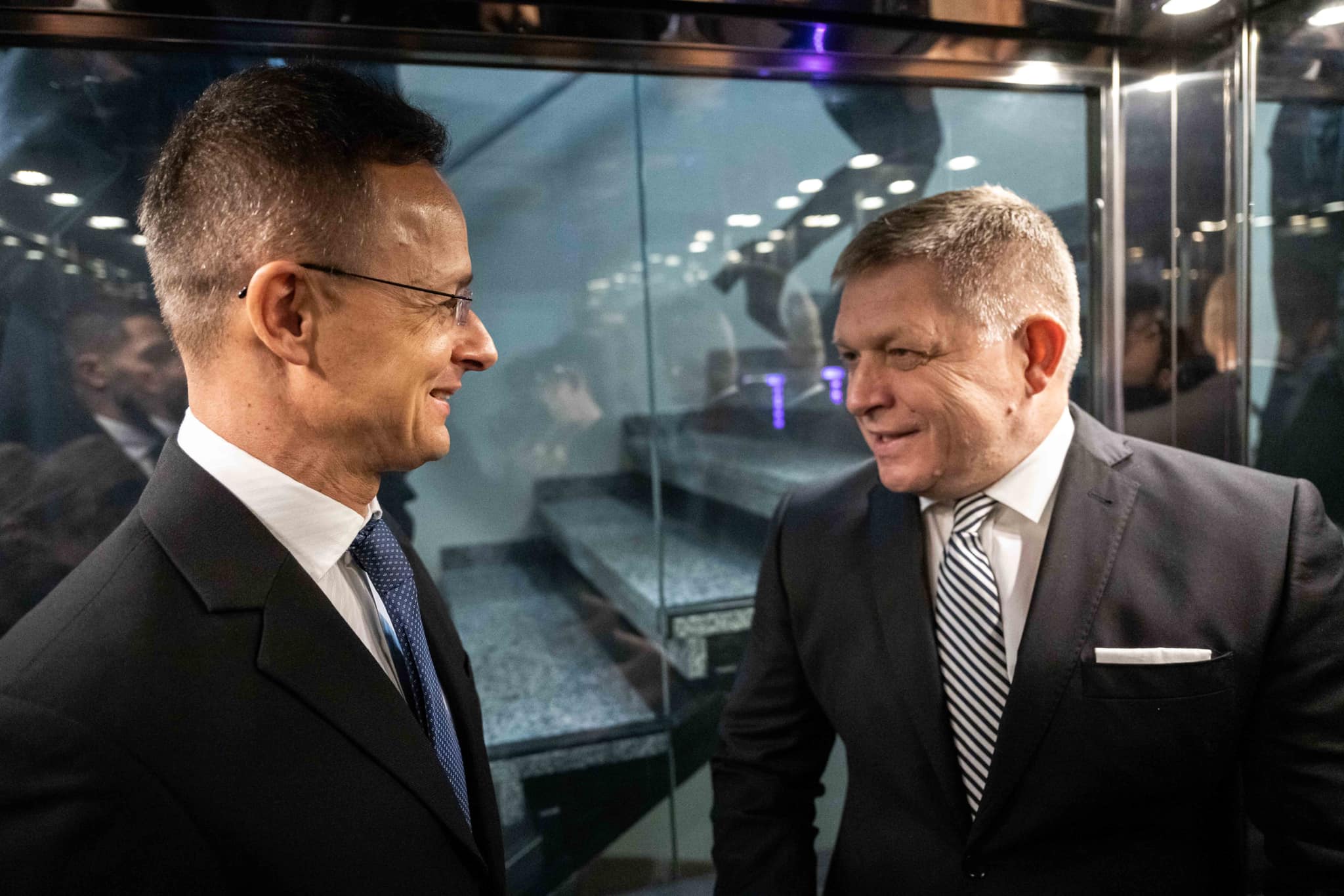
Both countries are reliable NATO allies, with Slovakia contributing dozens of police officers to the protection of the besieged Hungarian-Serbian border.Continue reading

The prevention of mandatory EU resettlement quotas was the greatest achievement of the Visegrád Group during the term of former Slovak Prime Minister Robert Fico, and it is still a decisive factor for the security of the region, Hungarian Minister of Foreign Affairs and Trade Péter Szijjártó said in Bratislava on Tuesday.
On Tuesday, the Minister visited Slovakia, where he met, among others, his Slovak counterpart Rastislav Káčer and later former Prime Minister Robert Fico, who is currently leader of the opposition party Direction – Slovak Social Democracy (Smer-SSD).
On blocking the migrant quotas, Szijjártó said: “If the Visegrád prime ministers had failed to carry out this feat in the face of huge headwinds, we would have tens of thousands of illegal migrants living in these countries today, and we would have said goodbye to our sovereign right to decide for ourselves who we let into our countries and who we are willing to live with.”
The work of the Visegrád Group has helped all of us, all four of us, to pursue our national interests. We have been able to achieve much more together in recent years than if we had tried to achieve our goals separately,”
he added.
Szijjártó said that Robert Fico had earned Hungary’s respect, as during his term in office Hungarian-Slovak cooperation had taken on a whole new dimension, improving the lives of people in both countries. As an example, he said the gas pipeline interconnection between the two countries was inaugurated, and although many people “gloated” and said it was a waste of money, it is now clear that those countries that have managed to connect most of their neighbors to their energy networks are safe.
The Hungarian Minister concluded by saying that “our region will be able to preserve its sovereignty, security, freedom, and stability if parties, governments and politicians who focus on the national interest and who have sovereignty as their flag can work well together.”
However, not everyone was happy about Szijjártó’s meeting with Fico. Slovak Foreign Minister Rastislav Káčer, who is known for his unflattering views about the Orbán government, was not at all pleased. He described Fico as having no backbone, and added that he had a gin after learning that Szijjártó had held talks with the former prime minister. Káčer said that if we want good neighborly relations, these gestures are incomprehensible to him. According to him, Slovak politicians do not make such gestures, they do not hold press conferences with opposition politicians.
Reacting to the situation, Szijjártó said that he has been foreign minister for more than eight years and has seen many things, but never something like criticizing someone for meeting not only with the ruling party, but also with opposition representatives.
Minister Szijjártó also attended the V4 Foreign Ministers’ meeting in Bratislava on Tuesday. At the press conference held after the meeting, he said that all four member states benefit a lot from the Visegrád cooperation, which has tangible positive effects that can be felt in people’s everyday lives.
He stressed that the Visegrád cooperation is “at the heart of Hungarian foreign policy.”
Since the Visegrád Group has existed, those of us who are part of it have been able to achieve more than if we had tried to do the same thing individually, separately,”
he said.
The Minister underlined that this partnership has also produced important results in economic and security terms. As an example, he said that last year, the trade turnover between Hungary and the three other member states broke the record at €35 billion, and increased by another 30 percent this year alone.
Featured photo via Facebook/Péter Szijjártó